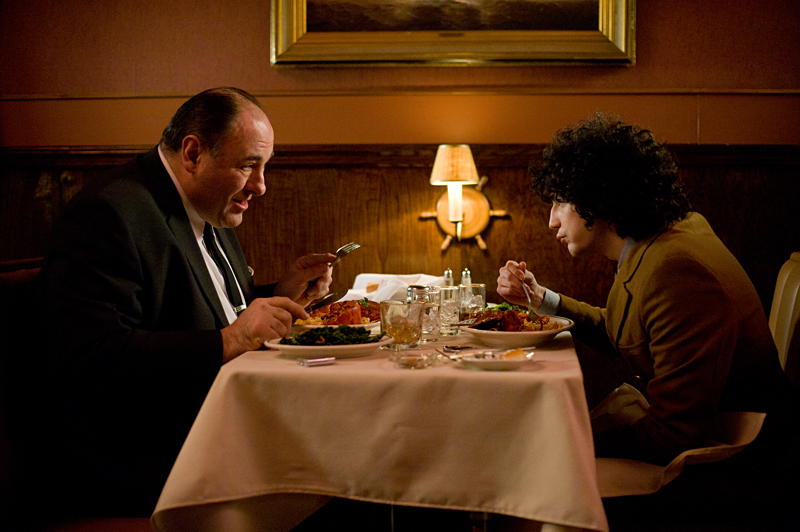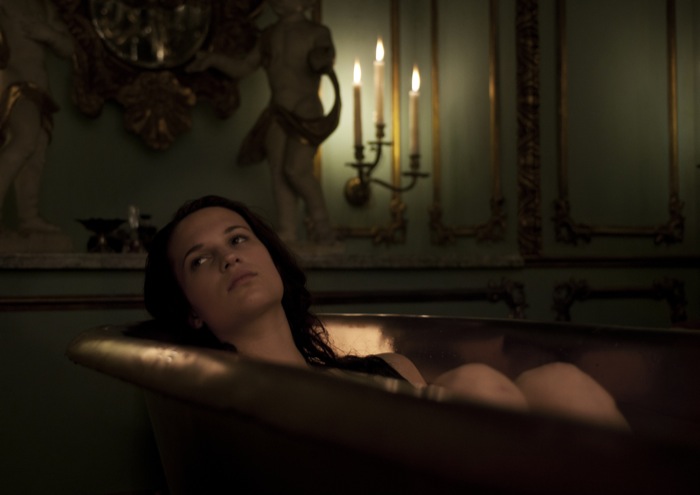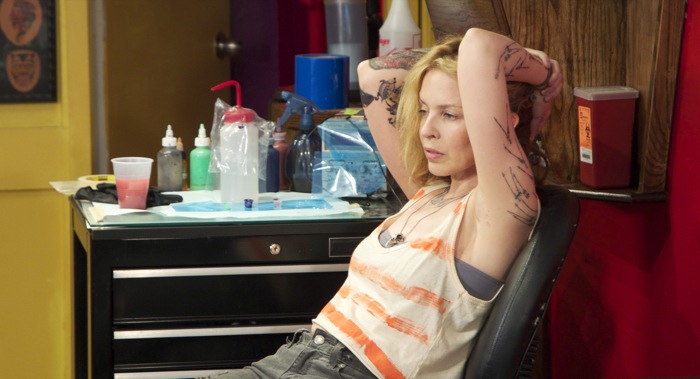Rock and roll proves the coming-of-age crucible in Not Fade Away, Sopranos creator David Chase’s semiautobiographical feature debut of shaggy hair, shagadelic beauties, and the joy and sorrow wrought from chasing, and failing to achieve, one’s dreams. Chase’s tale of showbiz striving has, in its basic form, been told before: A suburban kid rebels against his stuck-in-their-ways working-class parents by endeavoring to become a star—in this case, in 1960s New Jersey.Yet Chase distinguishes his material through a careful attention to emotional rhythms, crosscutting between songs and images like a skillful maker of mixtapes. That sort of confidence is indicative of his overall craftsmanship; he subtly intertwines guitar riffs and heated passions and communicates through graceful camerawork the confusion, elation, and turmoil felt by Douglas (John Magaro), a golf-course ditch-digger who dreams of banging the skins in the band of his friends Eugene (Jack Huston) and Wells (Will Brill). Then follows band strife, plus cultural and social upheaval, which leaves everyone battered and bruised.At first, Not Fade Away focuses on Douglas’ burgeoning confidence in music and romance. Both converge during a house-party gig that—after lead singer Eugene swallows a lit joint—finds Douglas stepping into the singer role, in the process impressing coveted beauty Grace (Bella Heathcote). Her encouragement to keep singing is the impetus for Douglas’ eventual rise to frontman, which Eugene naturally resents. Douglas’ rise from wannabe-Charlie Watts to Mick Jagger-in-training is depicted with sensitivity to teens’ impressionable egos; it also results in conflict at home between Douglas and his father Pat (James Gandolfini). The latter is disgusted by his son’s poofy hair, high heels, and petulant disdain for earning a living; Douglas is defiant toward his father’s casual intolerance and status-quo attitudes.If Not Fade Away seems intentionally minor and formulaic, something like a David Chase B side, it is energized by a shrewd wistfulness that honors both the nastiness and absurdity of the era. It’s especially smart about the way that generational clashes, and the tragedy they sometimes inspire, are born from a joint fear and confusion over shifting tides no one quite understands how to handle. That’s most readily apparent in a somewhat shoehorned-in subplot about Grace’s out-of-control sister (Dominique McElligott) and her rift with her proto-yuppie father (Christopher McDonald), which culminates with her being committed for “beatnik” rebelliousness. However, it’s Douglas and Pat’s borderline-violent dynamic—which more than once finds Dad threatening to beat the pulp out of his son—that’s central and given the most nuance. Chase treats both characters with just the right balance of gravity and humor, respecting their sincerity and good intentions yet pricking them for their nasty prejudices and adolescent pretensions. The resulting story is reflective without being cloying, and Chase’s nostalgia—expressed with pop-culture shout-outs and Steven Van Zandt’s jam-heavy soundtrack—never succumbs to corniness.Not Fade Away has its bumpier moments, be it band friction that’s often borderline clichéd or ill-fitting narration by Douglas’ sister (Meg Guzulescu), including a final-moment misstep of gratuitous cutesiness. Still, Chase mostly maintains an authentic groove, never pressing his period details too hard and finding offhand humor in peripheral figures, especially Douglas’ exasperated mom (Molly Price). Even a late turn toward the tragic is handled with understated aplomb. For pure, understated heartbreak, nothing in Not Fade Away quite tops a quiet dinner shared by father and son that, in Pat’s melancholy recollections of past romances, beautifully conveys the film’s simultaneously sad and hopeful—and thus mature—belief that, for better and worse, some loves must be lost so that others may be found. film@seattleweekly.com
Not Fade Away Seeking the Freedom to Rock in the ’60s








